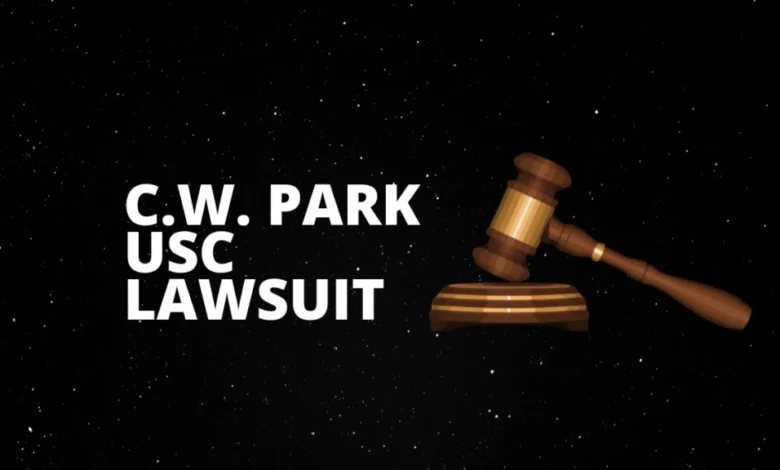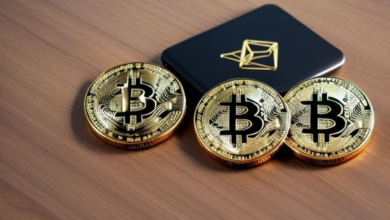C.W. Park USC Lawsuit: Latest Updates and Legal Developments

The C.W. Park USC lawsuit has been a significant legal battle, attracting widespread attention due to its implications for the University of Southern California (USC) and the broader academic community. This lawsuit, involving Professor C.W. Park, highlights issues related to academic freedom, workplace discrimination, and the legal responsibilities of educational institutions.
Background of the Lawsuit
C.W. Park, a distinguished professor at C.W. Park USC Lawsuit against the university, alleging wrongful termination and discrimination. The lawsuit claims that Park faced retaliation for his outspoken views on certain administrative practices and academic policies. According to Park, these actions violated his rights as a tenured professor and impeded his ability to conduct independent research.
The case began to unfold publicly in early 2023, when C.W. Park USC Lawsuit filed the complaint in a California state court. Since then, there have been numerous legal filings, statements from both parties, and a growing interest from the media and academic circles.
Key Allegations
The core of Park’s allegations revolves around claims of discrimination based on his national origin and age. He argues that the university targeted him because of his Korean heritage and senior status, favoring younger, less experienced faculty members for promotions and research funding. Park also alleges that his outspoken criticism of certain university policies led to a hostile work environment, culminating in his termination.
USC, on the other hand, denies these allegations, stating that Park’s dismissal was due to performance issues and not discriminatory factors. The university maintains that it adheres to strict policies ensuring fairness and equality among its staff.
C.W. Park USC Lawsuit: What You Need to Know
Understanding the complexities of the C.W. Park USC lawsuit requires delving into several key areas: the legal framework, the specific claims made by Park, and the broader implications for the academic community.
Legal Framework
The lawsuit is grounded in several legal principles, including employment law, anti-discrimination statutes, and academic freedom protections. Park’s legal team has cited various federal and state laws, such as the Civil Rights Act and California’s Fair Employment and Housing Act, to support their claims of discrimination and wrongful termination.
These laws provide a framework for addressing grievances related to workplace discrimination and ensure that employees have the right to pursue legal action if they believe their rights have been violated. The outcome of this case could set important precedents for how such laws are applied within academic institutions.
Specific Claims
Park’s lawsuit details numerous instances where he believes he was unfairly treated. These include being passed over for key research grants, exclusion from important departmental decisions, and receiving negative performance reviews without adequate justification. Park also claims that his termination was sudden and lacked the proper procedural safeguards typically afforded to tenured faculty.
USC’s defense counters these claims by pointing to documented performance issues and emphasizing the institution’s commitment to diversity and fairness. The university argues that any actions taken against Park were based on legitimate academic and administrative concerns.
Broader Implications
The case has broader implications for the academic community, particularly regarding the balance between administrative authority and academic freedom. Many faculty members at USC and other universities are closely watching the outcome, as it could influence future policies on tenure, academic governance, and workplace discrimination.
C.W. Park USC Lawsuit: Key Facts and Implications
Several key facts have emerged from the C.W. Park USC lawsuit, each carrying significant implications for the involved parties and the broader academic landscape.
Timeline of Events
The timeline of events in the C.W. Park USC lawsuit provides a clear picture of how the case has developed:
Early 2023:
Park files the initial complaint in California state court.
Mid-2023:
USC responds with a formal defense, denying the allegations.
Late 2023:
Preliminary hearings and motions take place, with both sides presenting evidence.
Early 2024:
The case gains media attention, sparking public debate on the issues involved.
Ongoing:
The lawsuit continues to evolve, with future court dates scheduled for later in the year.
Evidence and Testimonies
Throughout the proceedings, both sides have presented a range of evidence and testimonies to support their claims. Park’s team has introduced emails, internal documents, and witness statements that they argue demonstrate a pattern of discrimination and retaliation. In contrast, USC has provided performance reviews, departmental records, and expert testimonies to refute these allegations.
Legal and Academic Implications
The outcome of this lawsuit could have far-reaching legal and academic implications. If Park’s claims are upheld, it could lead to significant changes in how universities handle tenure, discrimination complaints, and academic governance. Conversely, if USC prevails, it may reinforce the institution’s current policies and practices, potentially discouraging similar lawsuits in the future.
C.W. Park USC Lawsuit: How It Affects USC Students
The C.W. Park USC lawsuit is not just a legal matter between a professor and an institution; it also has direct and indirect effects on USC students.
Academic Environment
One of the primary concerns is the impact on the academic environment at USC. The lawsuit has sparked discussions among students and faculty about the importance of academic freedom and the potential consequences of administrative overreach. Many students are advocating for greater transparency in how the university handles faculty disputes and are calling for policies that better protect the rights of professors.
Student-Professor Relationships
The lawsuit has also affected student-professor relationships. Students who have taken classes with Park or have been involved in his research projects are particularly concerned about how the case might impact their academic progress and future opportunities. Some students have expressed support for Park, while others are wary of the broader implications for the university’s reputation.
Institutional Trust
Lastly, the lawsuit has raised questions about institutional trust. USC students are paying close attention to how the university handles the case, as it reflects on the administration’s commitment to fairness and integrity. The outcome of the lawsuit could either bolster or undermine students’ confidence in the institution, influencing their overall educational experience.
C.W. Park USC Lawsuit: Timeline of Events
A detailed timeline of the C.W. Park USC lawsuit helps to contextualize the case and understand its progression.
Initial Filing and Response
In early 2023, Professor C.W. Park officially filed his lawsuit against USC, citing wrongful termination and discrimination. The filing included a detailed account of Park’s experiences and the specific incidents that led to his legal action. USC responded in mid-2023, firmly denying the allegations and outlining their defense.
Preliminary Hearings
Throughout mid to late 2023, several preliminary hearings took place. These hearings were crucial for both sides to present initial evidence and arguments. During this period, Park’s legal team submitted various documents and testimonies aimed at establishing a pattern of discrimination and retaliation. USC countered with evidence of performance issues and adherence to procedural norms.
Media Attention and Public Debate
As the case progressed, it began to attract significant media attention. By early 2024, the lawsuit was a topic of public debate, with various stakeholders weighing in on the issues at hand. This media coverage brought the lawsuit to the forefront of discussions about academic freedom, discrimination, and institutional responsibility.
Ongoing Legal Proceedings
The lawsuit is ongoing, with additional hearings and court dates scheduled for later in 2024. Both sides continue to gather evidence and prepare for what could be a lengthy legal battle. The outcome remains uncertain, but its resolution will undoubtedly have significant implications for all involved.
C.W. Park USC Lawsuit: Legal Insights and Analysis
Legal experts have provided various insights and analyses on the C.W. Park USC lawsuit, highlighting the complexities and potential consequences of the case.
Employment Law Considerations
From an employment law perspective, the case raises important questions about wrongful termination and discrimination. Park’s allegations, if proven, could demonstrate a failure by USC to adhere to anti-discrimination laws and proper termination procedures. This could result in significant legal and financial repercussions for the university.
Academic Freedom and Governance
The lawsuit also touches on issues of academic freedom and governance. Park’s claim that his termination was, in part, due to his outspoken views on university policies underscores the tension between faculty independence and administrative control. Legal analysts suggest that the case could set a precedent for how academic institutions balance these competing interests.
Implications for Tenure
Another critical aspect is the impact on tenure practices. Tenure is designed to protect academic freedom by providing job security for professors, allowing them to pursue controversial or unpopular research without fear of retribution. If Park’s case reveals weaknesses in the tenure system at USC, it could prompt widespread changes in how tenure is granted and protected across universities.
C.W. Park USC Lawsuit: Expert Opinions and Reactions
The C.W. Park USC lawsuit has elicited a range of opinions and reactions from experts in various fields, including law, academia, and ethics.
Legal Experts
Legal experts have emphasized the importance of the case in clarifying the boundaries of employment law within academic institutions. Many believe that the lawsuit could lead to more stringent enforcement of anti-discrimination laws in universities, ensuring that faculty members are protected from unfair treatment.
Academic Community
Within the academic community, reactions have been mixed. Some faculty members support Park’s stance, viewing his lawsuit as a necessary challenge to what they see as increasing administrative overreach. Others are more cautious, concerned that the case could lead to a chilling effect on administrative decisions and hinder effective governance.
Ethical Considerations
Ethicists have weighed in on the moral implications of the case, particularly regarding the treatment of senior faculty members and the responsibility of universities to uphold ethical standards. The case has sparked a broader conversation about the ethical obligations of educational institutions to their employees and the importance of maintaining a fair and just workplace.
C.W. Park USC Lawsuit: Comprehensive Guide
For those looking to understand the C.W. Park USC lawsuit in its entirety, this comprehensive guide provides a detailed overview of the case, its key components, and its potential impact.
Summary of the Case
The C.W. Park USC lawsuit centers on allegations of wrongful termination and discrimination by Professor C.W. Park against the University of Southern California. Park claims that his dismissal was due to his outspoken criticism of university policies and discrimination based on his age and national origin. USC denies these allegations, attributing his termination to performance issues.
Detailed Analysis
A detailed analysis of the case reveals several critical issues:
Discrimination Claims:
Park’s allegations of discrimination highlight potential systemic issues within USC’s employment practices.
Academic Freedom:
The case underscores the importance of protecting academic freedom and the potential risks of administrative interference.
Legal Precedents:
The outcome could set significant legal precedents for how universities handle similar cases in the future.
Potential Outcomes
The lawsuit could conclude in various ways, each with different implications:
Settlement:
The parties may reach a settlement, potentially leading to changes in USC’s policies and practices.
Trial Verdict:
A trial verdict in favor of either party could set important legal and academic precedents.
Policy Reforms:
Regardless of the outcome, the case may prompt broader policy reforms within USC and other academic institutions.
C.W. Park USC Lawsuit: Detailed Breakdown and Overview
To fully grasp the intricacies of the C.W. Park USC lawsuit, it’s essential to break down the key components and examine their significance.
Plaintiff’s Claims
Professor C.W. Park’s claims focus on several main points:
Wrongful Termination:
Park alleges that his dismissal violated his rights as a tenured professor and lacked proper procedural safeguards.
Discrimination:
Park claims that his age and national origin were factors in his termination, in violation of anti-discrimination laws.
Retaliation:
Park argues that his outspoken criticism of university policies led to a hostile work environment and ultimately his termination.
Defendant’s Defense
USC’s defense strategy includes:
Performance Issues:
USC contends that Park’s termination was due to documented performance issues, not discriminatory factors.
Adherence to Policies:
The university maintains that it followed proper procedures and policies in handling Park’s case.
Commitment to Diversity:
USC emphasizes its commitment to diversity and equality, arguing that Park’s claims are unfounded.
Legal and Academic Significance
The case holds significant legal and academic implications:
Legal Precedents:
The outcome could influence how anti-discrimination laws are applied in academic settings.
Academic Policies:
The case may prompt universities to re-evaluate their policies on tenure, discrimination, and academic freedom.
Institutional Trust:
The lawsuit’s resolution will impact public trust in USC and its handling of faculty disputes.
C.W. Park USC Lawsuit: Significant Outcomes and Future Impacts
The potential outcomes of the C.W. Park USC lawsuit and their future impacts are of great interest to many stakeholders.
Potential Resolutions
Several potential resolutions to the lawsuit include:
Settlement Agreement:
Both parties might reach a settlement, potentially involving compensation for Park and policy changes at USC.
Court Verdict:
A court verdict in favor of either party could have significant legal and academic ramifications.
Policy Reforms:
Regardless of the lawsuit’s outcome, it may lead to broader policy reforms within USC and other academic institutions.
Long-Term Implications
The long-term implications of the lawsuit could be profound:
Legal Standards:
The case could set new legal standards for how universities handle discrimination and termination cases.
Academic Freedom:
The lawsuit may strengthen protections for academic freedom, ensuring that faculty members can express their views without fear of retribution.
Institutional Policies:
The case could lead to changes in institutional policies, promoting greater fairness and transparency in faculty governance and employment practices.
Impact on Higher Education
The lawsuit’s impact on higher education extends beyond USC:
National Dialogue:
The case has sparked a national dialogue on issues of discrimination, academic freedom, and administrative practices in universities.
Policy Changes:
Other universities may re-evaluate their policies and practices in light of the lawsuit, leading to broader changes across the academic landscape.
Faculty Rights:
The case underscores the importance of protecting faculty rights and ensuring that academic institutions uphold their ethical and legal obligations.
In conclusion, the C.W. Park USC lawsuit is a multifaceted legal battle with significant implications for USC, the academic community, and the broader landscape of higher education. As the case continues to unfold, its outcome will likely shape the future of academic governance, employment practices, and the protection of academic freedom in universities.





